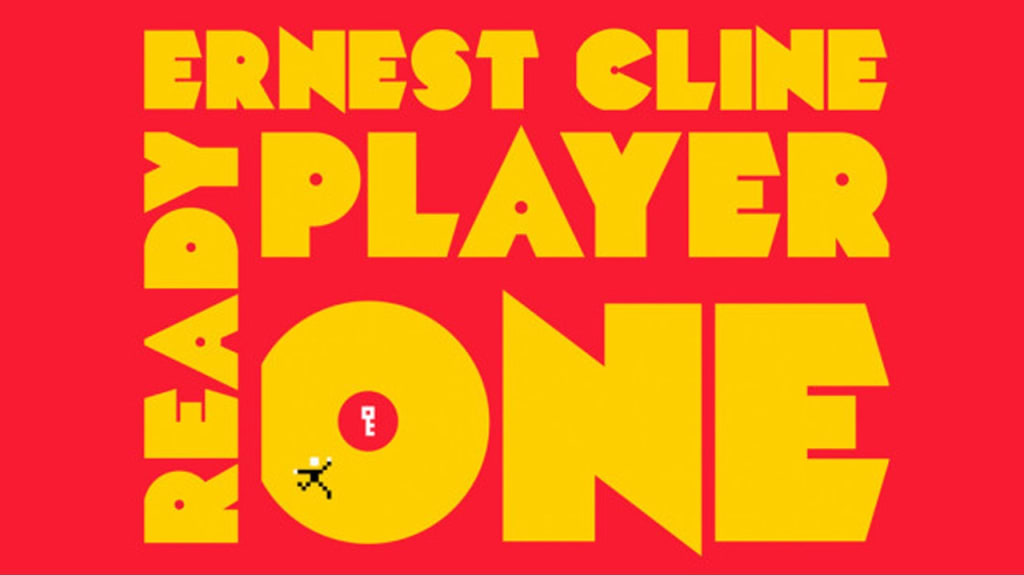Reading my Fiancé: ‘Ready Player One’ by Ernest Cline
A Novel Review

This review of Ready Player One by Ernest Cline is the second instalment in my 'Reading my Family' series in which I read and review novels as recommended by various family members. You can read my previous review of Rain by Virginia Andrews here.
Ernest Cline’s debut novel Ready Player One takes pace in a dystopian future where the world is derelict and the majority of its inhabitants escape their bleak reality by logging into the OASIS – a virtual immersive universe that allows you to go anywhere, do anything and be whoever you want. Before his death, its late creator hides an Easter egg inside the OASIS, promising his estate to anyone who manages to crack the many riddles in order to find it. It follows the story of Wade Watts – a teenage nobody – in his pursuit to obtain the egg before it falls into the wrong hands.
Despite its subject matter, the novel does not alienate readers who don't play videogames. You don’t need to understand the countless references and gaming jargon in order to become fully immersed in the tale, though it can get very tiring if it’s not something that interests you. Heavy with 80s pop-culture references, the novel reads like modernism for teenagers. It’s a cool attempt to involve the reader in the hunt – nudging them to go away and research these references in order to gain a deeper understanding of the OASIS and its late creator, just as the gunters do – but at times can be a little too overwhelming. It gets to a point where you can’t read more than a line along without being thrown some obscure reference. It would have made the novel more fun and interactive if obtaining this knowledge would allow you to decode the riddles alongside Wade, but their context within Cline’s world made this impossible.
Ready Player One also hits every branch on the tired trope tree. We have a ‘chosen one’ who after years of little to no progress suddenly cracks the riddle to obtaining the first key whilst daydreaming in class; this ‘chosen one’ also happens to be our orphaned protagonist whose guardian is dislikeable and conveniently discarded early on so that the novel can progress without parental hindrance; there’s the quest to retrieve an object that, in the wrong hands, could cause a world of detriment; and then there’s the cliché bad guy – though at least IOI actually have a believable motive in wanting to take over the OASIS for monetary gain rather than just being evil for the sake of being evil. Having said that, the unique setting in which these common fantasy tropes are executed helps breathe new life into them. They keep the novel grounded with familiar signposts that aid the reader in their navigation of this highly unfamiliar world.
At times, the world building interferes with the pacing. The telling of the backstory is great; Cline doesn’t just regurgitate the notes he scribbled down during planning in a tedious book-long prologue, but delivers this information in various different formats, breaking down the content into digestible chunks that help keep the reader stimulated and interested. However, the general world building continues long into the novel, acting as speed bumps in places where the plot should be picking up the pace.
There are also some issues with the characters development. Wade is not one you wish to root for as he has few interesting qualities beyond the fact that he is a somewhat relatable underdog who overcomes his tropes to defeat the bad guys. That being said, it is refreshing that he is not depicted as an all-good-no-bad sort of character, with realistic flaws that make him more believable, though no time is given to the exploration of these flaws so he is unable to overcome them. For instance, he indirectly kills his neighbours and what is left of his family with little remorse. A deeper look into the complexities of Wade’s emotional state following this event would have been welcome, so too would a more detailed insight into his homelife and relationship with Mrs. Gilmore prior to the attack so that its impact could be felt more deeply. Artemis, on the other hand, has potential to be a strong female character, and you have to admire Cline’s attempt at crafting her as such, but unfortunately, she falls into another one of the novel’s many tropes. She is the cliché Ramona Flowers-type girl who is attractive to our underdog protagonist because she is a short-haired gamer girl with a geeky streak.
I had a lot of bones to pick with this novel and perhaps that is partly due to the fact that it isn't the sort of book that would typically interest me. Despite my qualms, the novel is by no means bad and I can see why it achieved such success. Cline creates a world that is both alluring and terrifying. He writes in a way that feels as if you are slipping on a VR headset and entering the wondrous world of the OASIS yourself. It is all too easy to become fully immersed in the hunt for Halliday’s Easter Egg, but its unfortunate that at times you are snatched out of it by the weird pacing. Regardless of this, it is a premise that holds much promise, providing an enjoyable read in spite of the creases.
About the Creator
Tyler Turner
Music and film blogger. English and History student. South Park goth kid.
Like what I do? You help me continue doing what I love most by supporting me on ko-fi.com/tylerturner






Comments
There are no comments for this story
Be the first to respond and start the conversation.